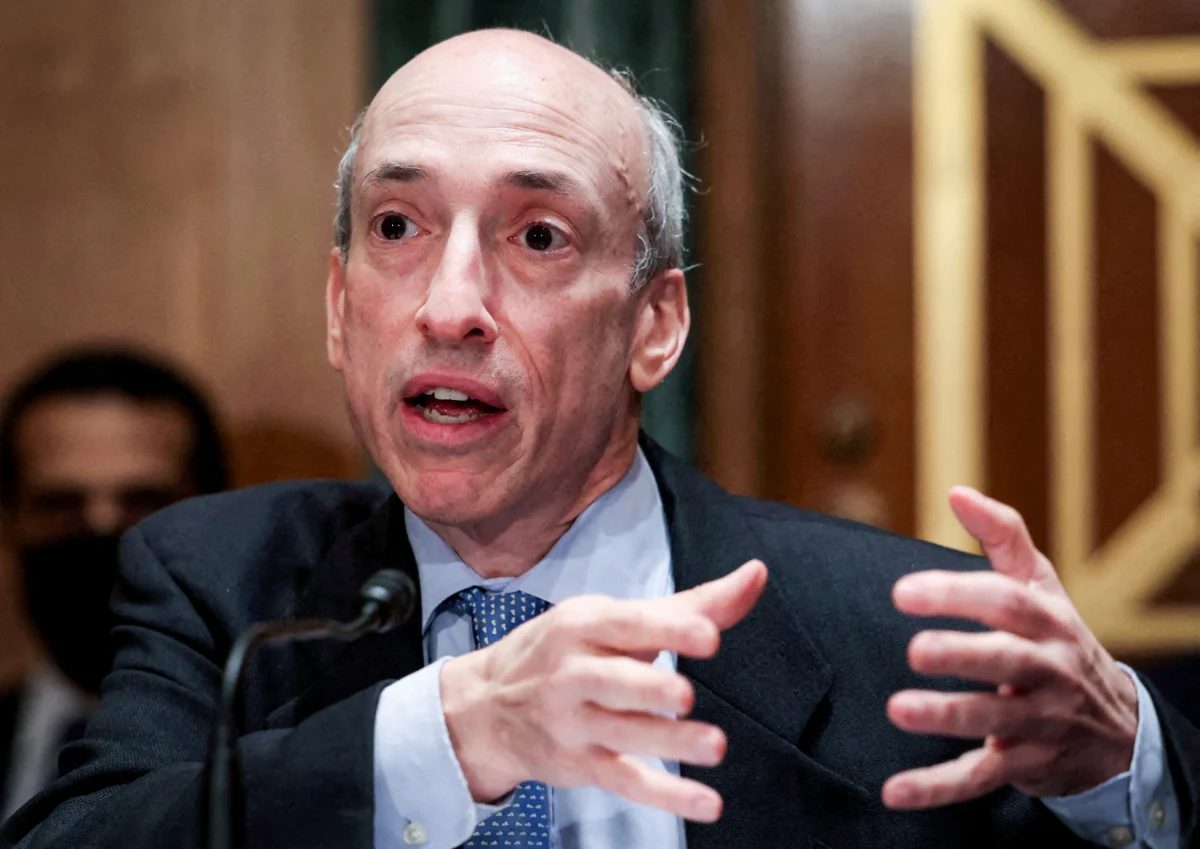The House on May 22 approved a key bill that would set up a new regulatory framework for cryptocurrency. While the White House has expressed opposition to the legislation, President Joe Biden did not indicate he will veto it.
The bill, called the Financial Innovation and Technology for the 21st Century (FIT 21) Act, passed by the House in a bipartisan 279–136 vote. It now heads to the Senate for consideration.
FIT 21, considered the most comprehensive legal framework for cryptocurrency assets, would grant the Commodity Futures Trading Commission (CFTC) primary jurisdiction over the crypto sector, effectively sidelining the Securities and Exchange Commission (SEC).
The White House confirmed its opposition to the legislation, although officials said in a statement ahead of the vote that they are “eager to work with Congress to ensure a comprehensive and balanced regulatory framework for digital assets.”
“The administration looks forward to continued collaboration with Congress on developing legislation for digital assets that includes adequate guardrails for consumers and investors while creating the conditions needed for innovation, and further time will be needed for such collaboration,” the statement reads.
Ahead of the vote, eight Democrats pushed their colleagues to support FIT 21, writing that the bill was crafted “to prevent the next FTX by giving regulators increased power over digital asset firms” and “filling regulatory gaps.”
“It’s past time for Congress to act,” the letter states. “The U.S. is falling behind other jurisdictions.”
Several crypto firms and advocacy groups urged the lower chamber to support the legislation.
“FIT 21 will introduce new compliance challenges for digital assets companies, but regulatory clarity is indisputably more responsible, safer for consumers, and preferable to the status quo,” the Crypto Council for Innovation said in a statement.
Washington Debates Crypto
Critics, including SEC Chair Gary Gensler, argue that the bill would place investors and capital markets “at immeasurable risk.”
“[FIT 21] would create new regulatory gaps and undermine decades of precedent regarding the oversight of investment contracts, putting investors and capital markets at immeasurable risk,” Mr. Gensler wrote in a May 22 letter ahead of the congressional vote.
One of the drawbacks of the bill, he warned, is that it would allow unscrupulous actors to avoid securities law by describing their financial products as crypto assets.

“The crypto industry’s record of failures, frauds, and bankruptcies is not because we don’t have rules or because the rules are unclear. It’s because many players in the crypto industry don’t play by the rules,” he said. “We should make the policy choice to protect the investing public over facilitating business models of noncompliant firms.”
FIT 21 supporters, such as Rep. French Hill (R-Ark.), say that the crypto industry has been functioning without a regulatory blueprint, allowing the SEC to “pursue a regulation by enforcement agenda that leaves market participants fearing that they’ll be subject to litigation at a moment’s notice if they continue to operate in the U.S.”
According to Mr. Hill, the bill does not reinvent the wheel or restrict the SEC from policing the financial markets. Instead, FIT 21 includes consumer protections, imposes capital requirements on intermediaries, and implements higher standards for custody, the chairman of the Subcommittee on Digital Assets, Financial Technology and Inclusion told the House Financial Services Committee on May 21.
FIT21, according to House Financial Services Committee Chair Patrick McHenry (R-S.C.), would “cement the United States’ global leadership in technological innovation, invention, and adoption.”
“Unfortunately, our current regulatory framework is preventing digital asset innovation from reaching its full potential,” Mr. McHenry said on the House floor. “The SEC and the CFTC are currently in a food fight for control over this asset class. They have created an impossible situation where the same firms are subject to competing and contradictory enforcement actions by the two different agencies.”
The latest legislative action comes a week after a bipartisan Senate voted to cancel an SEC accounting policy for crypto, leading to a potential showdown with President Joe Biden, who vowed to veto the joint resolution.
According to an April 2023 Pew Research Center study, 75 percent of Americans who have heard of cryptocurrencies are not confident in their safety and reliability.
Republicans Will ‘Build a Crypto Army’
While he has not commented on the bill, former President Donald Trump and his 2024 campaign have leaned into crypto.
The presidential campaign announced that it started accepting cryptocurrency donations on May 21.
In the announcement, campaign officials targeted Sen. Elizabeth Warren (D-Mass.), who signaled in March 2023 that she would construct an “anti-crypto army.” In response, the campaign vowed to “build a crypto army.”
As more Republicans turn bullish on cryptocurrency, a chorus of Democrats has warned that the party “cannot hand this issue to the Republicans.”
“Digital assets shouldn’t be a partisan issue,” Rep. Wiley Nickel (D-N.C.) wrote on X, formerly known as Twitter, earlier this month. “I’m going to continue working in a bipartisan way to support Web3 so that we can protect American consumers and keep blockchain and crypto innovation in the United States.”
Recent polling data suggest that crypto owners have shifted their support from President Biden in 2020 to the presumptive Republican presidential nominee in 2024.
According to a March 2024 Paradigm Policy poll, 48 percent of crypto owners favor President Trump compared with 39 percent who support the incumbent.
“There’s lots more I could say about this poll, but the key takeaway is this: Crypto matters, including to the millions of Americans who own it,” Justin Slaughter, policy director at Paradigm and former SEC senior adviser, wrote on X. “Engaging in a War on Crypto is shooting at our own voters. The current Admin approach hasn’t helped investors but has hurt politically.”
A Harris Poll Insights survey, commissioned by the Blockchain Association, discovered that more than one-quarter (26 percent) of voters say they consider political candidates’ positions on digital assets when making their decisions.
Additionally, one-fifth of registered voters in battleground states consider cryptocurrency a major issue in the 2024 election, the poll found.
President Trump’s campaign is accepting bitcoin, ether, U.S. digital coin, dogecoin, and shiba inu coin.
Independent candidate Robert F. Kennedy, Jr. accepts bitcoin donations.
From The Epoch Times

